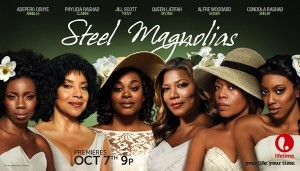**TRIGGER WARNING**: RAPE, SEXUAL ASSAULT
**SPOILER ALERT, even though you already know this story or ain’t going to see it anyway.**
On opening night of Tyler Perry’s Temptation: Confessions of a Marriage Counselor I was down front in a sold-out theater in Memphis, Tennessee. In October 2008 Tyler Perry’s The Marriage Counselor, the stage play on which the film is based, came to downtown Memphis and played to an equally sold-out if older crowd from all over the tri-state area. I’ve written about Perry in my book, This Ain’t Chicago: Regional Identity in the Post-Soul South, where I argue that Perry’s work, and controversy over his work, highlight the fundamental fissures in native black American identity. Confessions ignites these fault lines, the boundaries of blackness, as it were, particularly religion, gender, class, and sexual behavior. It pushes beyond the play’s relatively benign moralizing and compels viewers to put on, or push up, their Normative Center of Blackness goggles. As much as black intellectuals, buppies, and coffeeshop hipsters either “never followed” or “are over” Perry’s work, the filmmaker’s vision in some ways reflects the worldviews we/they actively hide from in ivory towers, at indie-rock concerts, and in our red-black-and-green, third-eye, black arts communities. I follow Perry because even ethnographers and racial insiders have to be reminded of the worlds beyond their comfort zone, even when we think we know those worlds all too well.
I’m no film critic, and/but/so I have no real quarrels with people’s indictments of Perry’s writing and directing. The Confessions diegesis samples a number of tired Hollywood movie tropes that vacillate from War of the Roses to The Devil Wears Prada. A narrator tells us a story about a time past; country folks grow up, move to, and try to make it in the big city; the educated girl who is *not* superficial sees her designer-clothes-donning colleagues as inferior beings and vice versa; (d)evil villain drives a red car; good but wounded woman is filled with mother wit quips; uber religious person’s prophesies all come to pass. The list goes on. As far as the mechanics of the film go,Confessions reminded me of what I imagine it might be like to listen to all of those throwaway Kanye beats (you know, the ones he made during those three summers that he locked himself in a room and made five beats a day?): a relentless hodgepodge of worn soul samples tortured, contorted, and mashed together on track after track.
Judith and Brice are the country couple, raised in small-town Virginia, who have a childlike innocence and love that can only happen in places that still have dirt roads. They grow up, marry, get edumacated, and move to the big city, Washington, D.C., to begin their lives. Brice, played by Lance Gross, is the steadfastly conservative (missionary style in the bed only, please), hardworking black man, even if he is an inattentive husband. Perry situates him as an essentially good man who merely forgets his wife’s birthday because he’s so busy working and trying to build a better life for them. In Brice, Perry resurrects his go-to male protagonist, a working, GOOD black man who, while he has some flaws, is always the optimum choice for black women. Judith, country and green, is essentially good, but whereas countryness is Brice’s strength, it’s ultimately Judith’s downfall. Played by Jurnee Smollett, Judith is lured into a world of fancy cars, clubs, private jets, and cocaine by Harley, a rich social media mogul played by Robbie Jones. Harley is pure, hot, rich, seductive evil; his character is a familiar archetype used to compel black women to be grateful for what(ever) they have. He’s rich and good looking, but dangerously lonely, an addict, violent, abusive, socially awkward, and contemptuous of God. Brandy Norwood rounds out the major players, portraying battered but down-to-earth Melinda, who takes a job at the pharmacy where Brice works and who also just happens to be Harley’s ex-wife. (The love rectangle is complete.) Although Judith’s uber-religious, country, and overbearing mother warns her that Harley will be her downfall, Judith persists in her relationship with Harley. In the end, however, mother/God/The Bible was right, of course. Not only does Harley savagely beat Judith, but—surprise!—he has HIV and has given it to ex-wife Melinda and now Judith. (This is a key plot difference from the play, which has Judith’s initial test negative but leaves the door open for something to change at the re-test in six months.) In an act of Working Black Man Superhero valiance, Brice saves Judith from Harley’s clutches and allows an accompanying Melinda to temper his physical anger against the inebriated Harley. Brice and Judith divorce, Brice finds a respectable black woman and has a child with her, and Judith spends her days going to church with her mother, picking up her HIV meds from the pharmacy where Brice works, and hobbling up and down the street. (Seriously. It took Judith the entire credits to walk what couldn’t have been more than half a DC block. It isn’t clear whether HIV is beating her down, she’s still getting a spiritual beating, or the beating she sustained from Harley was physically life-altering.)
In Confessions, Perry reflects or echoes back a part-caricature, part-observational representation of traditional (southern…) black folks’ ideas about religion, gender, class, and sexual behavior. Perry is less an architect than he is the lingering echo from a megaphone. The echo is distorted in some ways, but it comes from an actual original sonic source. Further, Perry is far less daft than we often assume. His critique of the church coupled with his simultaneous affinity for black cultural religious traditions is not radically unlike that which Baldwin offers us in The Amen Corner. Yet, because Perry reflects or echoes something that we fundamentally do not want to face or hear, he becomes a convenient scapegoat. When we critique Perry, we vent our frustrations against someone whom we perceive as having the power to do something different than just capture echoes, and we quietly condescend to those people we’re hiding from (or our aunts, cousins, mothers, and friends) without getting directly in their faces. It’s easier to be “over” or to “never follow” Perry, but quite a different thing to be over or not be studyin’ the politically powerful center of black identity.
In The Boundaries of Blackness: AIDS and the Breakdown of Black Politics, political scientist Cathy Cohen argues that in the 1990s, the crisis of HIV/AIDS in black communities made especially visible already existing fissures in a seemingly monolith political blackness. Prefiguring philosopher Tommie Shelby’s argument about the dangers of a “thick blackness” and its concomitant forms of black solidarity, as well as Toure’s argument about post-black identities, Cohen argues that HIV/AIDS is precisely the political issue that broke an otherwise generally solid wall of black political solidarity and mobilization, particularly on the local level. HIV/AIDS represents a constellation of outsider statuses—LGBT persons, drug users, and poor blacks, and especially poor women—with which conservative blacks could not conjure a linked fate, not even with the obvious similarities of skin color, racial status, and community membership. Even recently, Frontline’s special documentary,Endgame: AIDS in Black America, dedicated a lengthy segment to the explosion of HIV/AIDS in the South and featured a pastor whose assessments of the crisis, its origins, and how to address it seemed anachronistically out of touch with current public health knowledge and realities. To the point: “AIDS is God’s curse on homosexual life,” and “[AIDS] stinks in the nostrils of God,” were amongst the choice quotes. Churches that take an activist role and swim away from the center of black identity are outnumbered by conservative churches that implicitly or explicitly reject measures that would decrease the marginalization of a variety of black outsiders.
The power of HIV/AIDS and all that it signifies as a litmus test for black solidarity is operationalized in Confessions as the punishment for black women who do not conform to Christian, heteronormative behavioral patterns. In the play and the film, HIV is a disease of the depraved, of men whose hubris has solidified their seat in hell and the gullible women victims they will take their with them if the sisters do not hurr’up and repent. The film doesn’t allow or imagine a world in which Judith and Harley use protection, and thus uses HIV to comment not on unprotected sex (a public health concern), but on extramarital sex (a religious concern). Further, the film operationalizes HIV to comment on what happens when women don’t work hard enough to talk to their husbands about their needs, or worse, when women have irrational expectations of their husbands, like remembering birthdays or anniversaries. Through HIV, the film marginalizes people with deviant sexual behavior (people who have extramarital sex, LGBT people regardless of sexual behavior), single people (unless they aren’t having sex, like Judith’s mother or a seropositive Melinda, redeemed by the fact that she isn’t having sex), women (again, unless they aren’t having sex, like Judith’s mother, or a seropositive Melinda, redeemed by the fact that she isn’t having sex), drug users, and non-Christians. Perry dials up the same boundaries of blackness, deploys them through the ever-polarizing HIV crisis, and calls for a return to the center, the church, God, missionary style, heteronormativity, and patriarchal power. Or is he merely reflecting and refracting what Cohen has already told us social scientifically about attitudes around HIV?
HIV and extramarital sex isn’t the narrative’s only s(ch)tick. Judith’s class-based aspirations operate in tandem with her (unprotected) lust to seal her fate. “All that glitters ain’t gold,” her mother tells her in the play before she launches into a song about something. But glitter is grand, and the devil’s shiny toys attract country girls, the narrative suggests. In the play, Judith and her husband are plagued by money troubles and she is as much attracted by her college flame’s wealth as she is by his pectoral dances. In the film, we are invited to believe that Judith has enough (financially and spiritually) and that she should be both satisfied and patient until such time when things are different. In her inability to delay her gratification and practice emotional and financial frugality, Judith crosses the line. She wants her own marriage counseling practice, but husband Brice thinks that, realistically, her dream is 10 to 15 years off. Harley, however, buys Judith a space for her practice and promises to go into business with her, something Good Hardworking Black Man Brice simply cannot do. Judith’s aspirations and impatience, coupled with her gullibility and ungratefulness for her husband’s love and sacrifice, doom her to the fate of HIV. The class dimensions of the film’s diegesis reflect perceptions of heterosexual middle class black women’s unmarriageability as well as ideas about how their aspirational desires—portrayed in the film and play as women wanting a “phenomenal” or “great” man and not just a “good” man—relegate them to undesirables status. The universe in which heterosexual black middle class women win is the one in which they are willing participants in a heteronormative family structure. This is not solely Perry’s vision, if it is his vision at all. But it is certainly the one we are often told that we live in.
And then there’s the rape.
After Judith and Harley have a successful meeting in New Orleans—obviously home of the devil given its annual bacchanalian celebration known as “The Essence Music Festival”—they have several drinks on Bourbon street and return to Harley’s private jet, where there is more intoxicant. Declaring that he wants to have sex with her matter of factly, Harley proceeds to force himself on Judith. The encounter embodies enough problematic ambiguity to silence most viewers into a helpless complicity. Harley orders Judith to stop resisting since she has reached a necessary resistance quota. “Now you can say you resisted,” he says, half to Judith, and half to women everywhere on behalf of men like him. There are multiple messages here. If you’re a good girl and putting up a fight is part of your performative embodiment of that role, you can stop at a certain point and give in to what you really want—which is totally what your partner really wants, of course, because you don’t know what you want. Or, if you’re married and having an affair, you can explain it to your husband, if it comes up, by saying that you resisted—and you wouldn’t be lying, which is the most important thing when you’ve been raped. Resistance in this formulation serves as an excuse for infidelity or something that you regretted later, and not a genuine response to an attempted rape. Finally, if you’re on a private jet or otherwise trapped and you risk being hurt or overpowered by a man who wants to rape you, don’t resist too long, lest he become angry. Just give in, and perhaps you might enjoy it, as flashbacks Judith has later seem to intimate. After they arrive home, Judith tells Harley that she never wants to see him again, but it is unclear whether he just had bad dick, or if she feels guilty about the affair, or if she is angry about the rape, or if she is angry because her mother was right, or if she feels ashamed and angry about it all. Left up to the audience I was in, which was uncomfortably silent in this moment save for some “oooooweees” here and there, I’m not sure what the consensus would have been. When I said out loud, “That’s rape. He’s gonna rape her on the plane, and she can’t escape,” the silence around me continued. Despite the rape, Judith continues her relationship with Harley, which intensifies, along with her shoe game, distance from God, and drug use.
On a discursive level, rape functions as discipline, corporeal and spiritual punishment, comeuppance, and just deserts for an errant wife, an errant daughter, and an errant child of God. Yet, if we conceptualize Perry as echo-catcher, the rape scene reflects our broader rape culture, from Republicans to Steubenville to Rick Ross and back again. Although few of us in the audience had probably been on a private jet alone with a man who might intend to rape us, I wondered how many women in the audience knew that experience of giving in to protect themselves from a worse fate and were forced to relive shame and hurt. I wondered how many of the women in the audience gave a side eye to their good guy partners they were in the theater with that Friday night. I wondered if girls like Judith, raised on Jesus and dirt roads in small-town Virginia, know about the rules of consent? Or even if it matters whether they do or not in a rape culture where men should really blow whistles on themselves if they believe they are going to rape someone? Like Ta-Nahesi Coates calls out all “the good, racist people,” I wondered if we could re-imagine rapists not as inherently evil red sportscar driving powerful boogeymen like Harley. Could good husband Brice, with his conservative views about women’s roles and marriage, be a rapist? This is where Perry’s echo is distorted as well. In his strivings to hold up the good men whose flaws are ones of mere oversight but not fundamental deal breakers, Perry misses that, in fact, good Working Black Men Superheroes can be bad, too. And if you’re a black woman, they are more likely to be your rapist than the dastardly rich mogul who doesn’t go to church.
Confessions certainly revisits old Perry terrain with familiar themes and archetypes and borrows from a mixed bag of film tropes to piece together those themes and breathe some life into those archetypes. Perry argues that his films and plays have important messages that get people in the center of blackness to talk about things about which they have been silent, like child sexual abuse and domestic violence, for instance. Critics give Perry a great deal of credit for constructing a world in his films that they do not believe exists. Although Perry makes missteps in his reflections, the worlds he portrays do exist, and perhaps especially in the South. He has not, by himself or at all even, erected them. We are uncomfortable with them—with the worlds of green, country selves, of gospel singing selves, of the uber religious selves, or even of the slave selves, the yessir, massa selves, the watermelon selves, our premodern selves—so we are uncomfortable with him. We are tempted to and do go after him for our own personal post-black dignity, not to advance a conversation with the folks in those other worlds that are so close to our own.
Few people would claim that we should get over hip-hop and stop thinking about it, listening to it, and analyzing it, no matter how vile we find some of the things on the radio, or how trite and predictable those things become, or how distant we feel we are from it. We think about hip-hop, we argue, because of its significant influence on the youth, as well as because we believe it to reflect some elements of black and Latino youth culture, although those elements are mediated through and by a white corporate structure. Perry’s plays, films, and television shows, deserve the same sustained attention. We can lambaste Perry or Rick Ross or anyone else we feel is setting a bad example, but we won’t change the reflection in the mirror or the echo that bounces back from the millions of voices, many of them powerful because of their proximity to the center of blackness. We best stop throwing rocks at the mirror or trying to fight echoes and look around and talk to those around us, participate and listen to the voices, and hope to transform the echo and the reflection.





